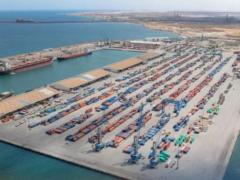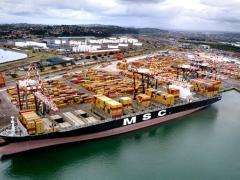The European Union is poised to activate its powerful ‘Anti-Coercion Instrument’ (ACI) amid escalating trade tensions with the United States, as Washington threatens to impose a 30% tariff on EU imports starting 1 August.
This move, described by EU diplomats as a potential "nuclear option", would mark the first time the bloc employed this comprehensive trade defence tool designed to deter and respond to economic coercion by third countries.
The ACI, established in 2023, empowers the EU to implement a broad range of retaliatory measures beyond conventional tariffs.
These include restrictions on US suppliers’ participation in EU public tenders, export and import limitations on goods and services, curbs on foreign direct investment, and actions targeting intellectual property rights.
This could significantly impact American firms operating within the EU, from digital service giants to agriculture and manufacturing sectors.
The context for this escalation is President Donald Trump’s insistence on imposing a hefty 30% tariff on imports from the EU, citing persistent trade surpluses and what he perceives as unfair trading practices.
The European Council data underlines that, while the EU runs a substantial surplus in goods trade with the US, it registers a deficit in services, resulting in an overall surplus of around €50 billion in 2024.
CNBC reports that negotiations continue behind the scenes, with the EU reportedly targeting a compromise baseline tariff of 10% alongside exemptions for sensitive industries, including automobiles, aerospace, agriculture, and machinery.
However, with no guarantee that talks will avert the tariff hikes, France, Germany, and other member states advocate readiness to deploy the ACI should the US fail to agree on a fair deal.
The European Commission emphasises deterrence as the ACI's primary goal but confirms it is prepared to escalate responses if needed. The procedure involves a thorough investigation of alleged coercive actions, consultation with member states requiring a qualified majority for approval, and ongoing dialogue with the offending country before any countermeasures are implemented. Responses will be proportionate, targeted, and temporary as long as the coercive practices persist.
Experts interpret the ACI as the EU’s ‘trade bazooka’, a formidable last-resort instrument intended to protect the bloc’s sovereignty and economic interests without triggering an uncontrollable trade war.
While some member states favour strong retaliatory strikes, the European Commission is expected initially to seek measured responses, such as tariffs on US goods, reserving the more extensive trade restrictions for escalated conflict scenarios.
Should the dispute escalate, ACI-enabled countermeasures could affect areas where the US enjoys a trade surplus, including digital services offered by firms like Amazon, Microsoft, Netflix and Uber.
Additionally, the EU can impose restrictions on US access to the lucrative EU public procurement market, which is worth approximately €2 trillion annually, potentially barring American firms from bidding on contracts where US content accounts for more than half the value.
With the trade dispute intensifying and the August deadline looming, the EU's deployment of the Anti-Coercion Instrument could fundamentally reshape transatlantic trade relations, signalling a hardening stance against what Brussels views as punitive economic tactics by the US.













